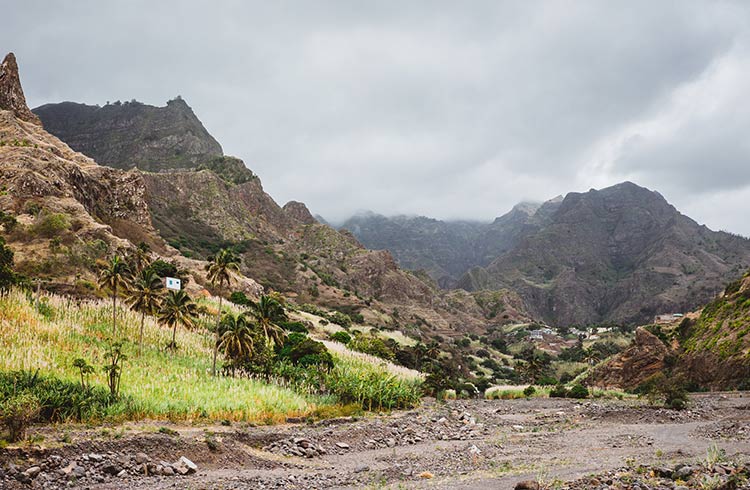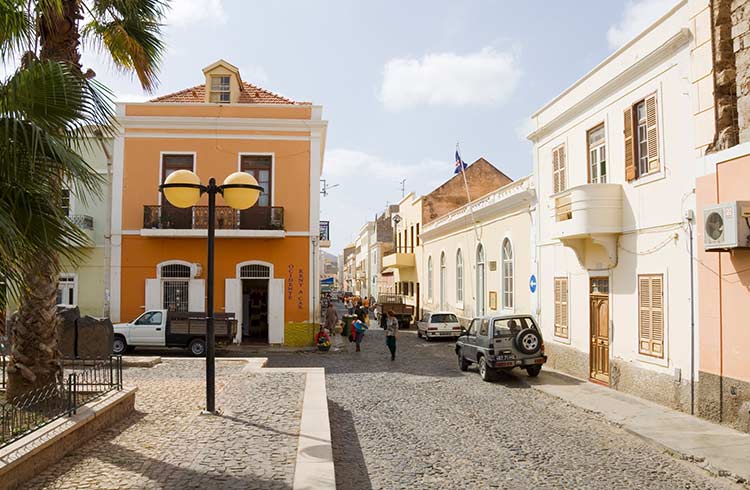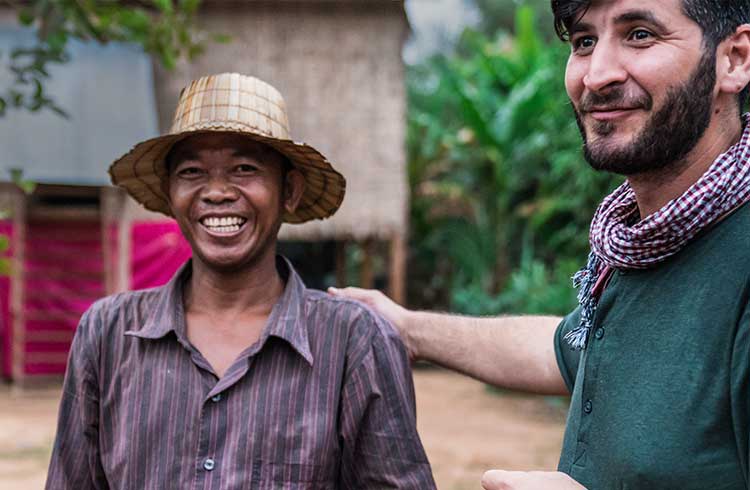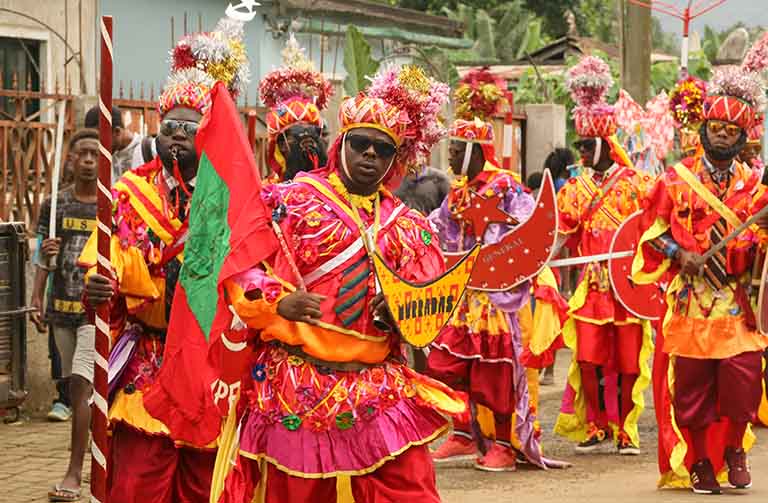Is Cape Verde Safe? 6 Essential Travel Safety Tips
Coronavirus (COVID-19) and travel: The situation around the world is changing dramatically. Various governments have changed their travel warnings to restrict travel during this time. To understand how this may impact cover under your policy, please go to our FAQs and select your country of residence.
For the latest travel warnings and alerts around the world, read about lockdowns and border restrictions.
Is crime an issue in Cape Verde? What about natural hazards, public transport and the weather? Here's how to stay safe on the islands.
Shares
 Photo © Getty Images/miniloc
Photo © Getty Images/miniloc
Before you set off to discover this archipelago off the western coast of Africa, just how safe is Cape Verde for travelers?
Travel here is mostly safe, and you shouldn't be worried about danger if you use common sense, such as keeping your belongings out of sight, not being flashy with jewelry or expensive cameras, and showing respect to the local culture, and of course the law.
- The risk of theft in Cape Verde
- How bad is crime in Cape Verde?
- Natural hazards in Cape Verde
- Weather in Cape Verde
- Is it safe to drive in Cape Verde?
- Public transport safety in Cape Verde
The risk of theft in Cape Verde
The risk of crime overall is relatively low in Cape Verde, though there has been an increase in recent years.
Travelers have reported being mugged or robbed on dark roads at night and in isolated areas. Street lights are scarce in many public places throughout the islands, and intermittent electricity blackouts can cause entire suburbs to go dim. Crowded areas such as marketplaces and festivals also attract pickpocketing, so keep your valuables close to you and somewhere nobody could grab them.
Thieves have been reported wandering around hotels looking for easy-to-get belongings near the beach in Santa Maria. So if you are staying nearby, don't ever leave your belongings unattended.
Beware of young children on the streets. Although uncommon, street kids have reportedly robbed tourists. Any group of young kids that are hanging out at night without adults may be on the prowl for your phones or money. Whether it's a child or an adult, you will rarely be accosted by just one thief – they usually approach in twos or threes in Cape Verde.
When leaving the airport in Praia, be wary of anyone asking to carry your bags for you – politely decline and insist you are happy to carry them yourselves. Avoid wearing flashy jewelry, posh clothing or flaunting expensive electronics. Be discreet like you would elsewhere to avoid attracting unwanted attention.
Muggings can be violent in nature. Praia and Mindelo are the most common areas for any type of violence, but it has also been reported on other islands, such as Sal. But, do the statistics back up the perception of heightened danger?
How bad is crime in Cape Verde?
Most violent crimes here are domestic in nature – and assaults committed by boyfriends and spouses against women are common in Cape Verde.
Organized crime, incidents linked to the drug trade and drug use and gang violence do occur. This is mostly linked to a high level of unemployment and the rise in trade of illegal drugs across the islands. Drug use is not a huge cause for concern, and is not as rife as it is elsewhere in countries such as the United States. However, it is a worthy reminder that travelers should never partake in illegal activities. It goes without saying: never accept drugs from a stranger on the streets.
Natural hazards in Cape Verde
Cape Verde is a chain of 10 volcanic islands and five islets, and each island does have natural dangers to be aware of. Santa Luzia is an uninhabited island. The island of Fogo has a volcano that still erupts from time to time, with the most recent eruption occurring in 2014. Tremors from eruptions can be felt on the islands of Brava and Santo Antão as well. The volcanoes on the remaining islands appear to be inactive.
Most natural hazards are in the sea. Rip currents are one of the chief dangers of swimming in the waters surrounding Cape Verde. Santa Monica beach carries risks both from rip tides and a rocky shoreline. Any traveler who chooses to go swimming or boating should take extra caution with currents. If sailing around the Cape, at least one government site lists the seas as treacherous. Small fishing boats have gone missing over the years, and sailing to the southern islands of Fogo and Brava is reported to be especially dangerous.

Weather in Cape Verde
Leave your umbrella and rain coat at home when traveling to any of the Cape Verde islands, as rainfall isn't abundant here. It‘s a very sunny part of the world, with the only clouds appearing when storms from the east blow in. While this can make for a pleasant vacation, this lack of precipitation can cause droughts and shortages of food. It also means fresh water is not readily available. Don't drink tap water: instead boil all water, carry water purification tablets, or use a water purification device, as tap water might cause stomach sickness.
Is it safe to drive in Cape Verde?
Road conditions are adequate in Cape Verde. Your biggest concern is cobblestone roads. This material is most common on the islands of Fogo, São Nicolau, Brava, Maio and Boa Vista – rain can make cobblestone roads slippery.
Asphalt roads are more common on Sal, Santiago and São Vicente. A project to switch cobblestone surfaces to asphalt is in progress on the other islands.
- Rural roads can be dangerous at night due to poor lighting. It is common for people or livestock to walk on the roads, so don't be distracted at night – drive carefully in these country areas when it gets dark
- Roads in mountainous areas are subject to mudslides and falling rocks
- It is common for drivers to speed on newly finished asphalt roads – as it's something local drivers can't do on bumpier roads
- Other driving habits here include aggressive driving and drink driving – which is considered problematic in Cape Verde. Be extra careful on the roads on Sundays, public holidays, or when festivals and concerts are happening
- Some drivers on the islands drive in the opposite lane, even when they can't see around the bend or are in a mountainous area with steep drop-offs – when you approach a sharp turn, drive very carefully just in case someone is speeding around the corner.
Public transport safety in Cape Verde
Public transport is surprisingly good in Cape Verde. But here's what you should look out for while getting from A to B.
- If you want to rely on public transport, buses are the best option for cheap, clean, regular service. Buses are in mostly good conditions, and are well-kept
- Taxis are another good option to use, however you should negotiate a fare before letting your driver take off
- If you want to get between the islands, it depends on where you want to go, as certain islands, like Santiago and Brava, can only be visited by watercraft. You can hop on a ferry or fly in a propeller plane, but flights are not always direct. Flights may be cancelled if weather conditions are not great, or if poor visibility is a problem
- Travelers have also reported luggage delays of up to two days due to the small planes with luggage limits
- You can travel via minivans or converted pickup trucks. If you get the latter, you'll basically be riding in the back of a pickup bed. If that doesn't make you queasy enough, the drivers aren't always safe, often speeding and drunk driving or packing too many passengers into the back
- Obvious precautions would involve surveying the driver to make sure he isn't intoxicated and not stepping into any vehicle already weighed down by too many passengers.
Before you buy a travel insurance policy, check your government travel warnings and health advice – there may be no travel insurance cover for locations with a government travel ban or health advice against travel.
Get a travel insurance quote for Cape Verde
You can buy at home or while traveling, and claim online from anywhere in the world. With 150+ adventure activities covered and 24/7 emergency assistance.
Related articles
Simple and flexible travel insurance
You can buy at home or while traveling, and claim online from anywhere in the world. With 150+ adventure activities covered and 24/7 emergency assistance.
Get a quote

2 Comments
I meant wut kind of natural hazards happen like tornadoes, earthquakes, um tunamies stuff like that
High Crime (kill-holdups- burilar in Mindelo/São Vicente !! Police it’s the Friends from capeverdian Crime People !!!